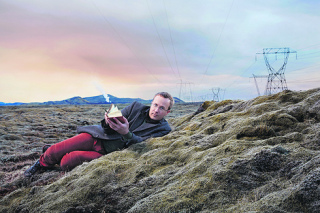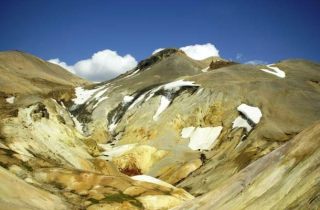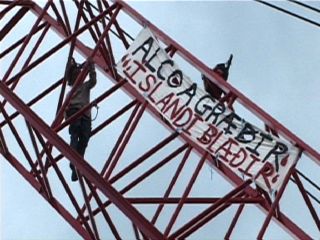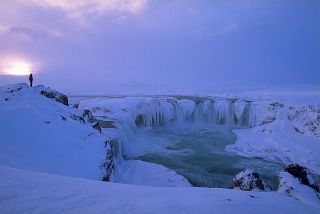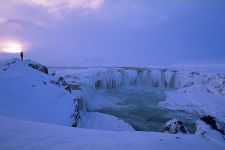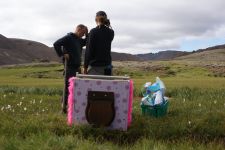May 24 2013
In the Land of the Wild Boys
Andri Snær Magnason
First published in Grapevine. Based on a 2010 article entitled “Í landi hinna klikkuðu karlmanna.” (“In the Land of the Mad Men”). Translated in part by Haukur S. Magnússon.
After the election, we see the old parties of economic mass destruction are coming back to power. Giving enormous promises of easy money to be wrestled from evil vulture funds, debt relief and tax reduction, The Progressive Party doubled in size after a few years of hardship. There is a jolly good feeling between the two young new leaders of a brave new Iceland, and when a radio host called them up and offered to play them a request, they asked for Duran Duran’s ‘Wild Boys.’ I Googled the lyrics, not quite remembering the lines, and got a nice chill down my back:
Wild boys fallen far from glory
Reckless and so hungered
On the razors edge you trail
Because there’s murder by the roadside
In a sore afraid new world
They tried to break us,
Looks like they’ll try again
Sounds quite grim. This, coupled with the new government’s announcement that it would be effectively dismantling the Ministry for the Environment and Natural Resources and that there will be no Minister for the Environment, gave me a strange flashback feeling. I decided to revisit the state of mind that we used to call normal in 2006. When the economic policy, the energy policy, the expansion of our towns, the mortgages on our homes—almost all aspects of our daily life had become totally mad. This is not my own diagnosis; if you search the homepage of the IMF for the phrase “Collective Madness,” you’ll find this:
“’Iceland, in the decade and a half leading up to the crisis, was an example of collective madness,’ said Willem Buiter, chief economist at Citigroup, a remark that elicited spontaneous applause from the more than 300 participants, many of them Icelandic policymakers, academics, and members of the public.”
In our daily lives, we usually sense what is normal and what is over the top. Sometimes the discourse will blind us; PR and propaganda can create a kind of newspeak. It can be a good exercise to try to talk about things in a foreign language, to view them in a new light. As an Icelander, you could for instance try to tell someone from another country that Iceland’s government sold one state bank and received payment in the form of a loan from another state bank—and vice versa. That the state banks were thereby handed to men that were closely connected to the then-reigning political parties. The manager of one of the parties became head of one of the banks’ board of directors, while the other party’s former Minister of Trade belonged to the group that was given the other bank. That man had access to every bit of inside information about the bank’s standing.
In the meantime, this former Minister of Trade became Central Bank Manager. He went to the US and made Alcoa an offer that the company could not refuse. He had thus set in motion the largest-scale construction project in Icelandic history, greatly increasing economic activity in Iceland—a grand boon for the bank he just finished selling to himself.
If you tell this story in a foreign language, people shake their heads. They gape in disbelief. They use words like “corruption” and “mafia.” They exclaim, full of disbelief and even disappointment, “no, not in Scandinavia!”
THE ACCEPTED INSANITY
It is insane to expand a banking system by tenfold in eight years. We know that now. It isn’t technically possible to grow all the knowledge and experience needed to build up and manage such a contraption in such a short time. Not even by shoving an entire generation through business school. It is impossible.
But the megalomania was not just confined to the banking sector. Energy production in Iceland was doubled from 2002–2007, when the huge Kárahnjúkar dam was built in the eastern part of the highlands—to serve one single Alcoa smelting plant. The energy it produces, about 650MW annually, is enough to power a city of one million people. Doubling the energy production in a developed country over a five-year period is not only unheard of, but it would also be considered ridiculous in all of our neighbouring nations. Most industrialised states increase their energy production by around 2–3% annually. Doubling it would be unthinkable. It has been proven again and again that gargantuan investments generally destroy more than they create. Read More
